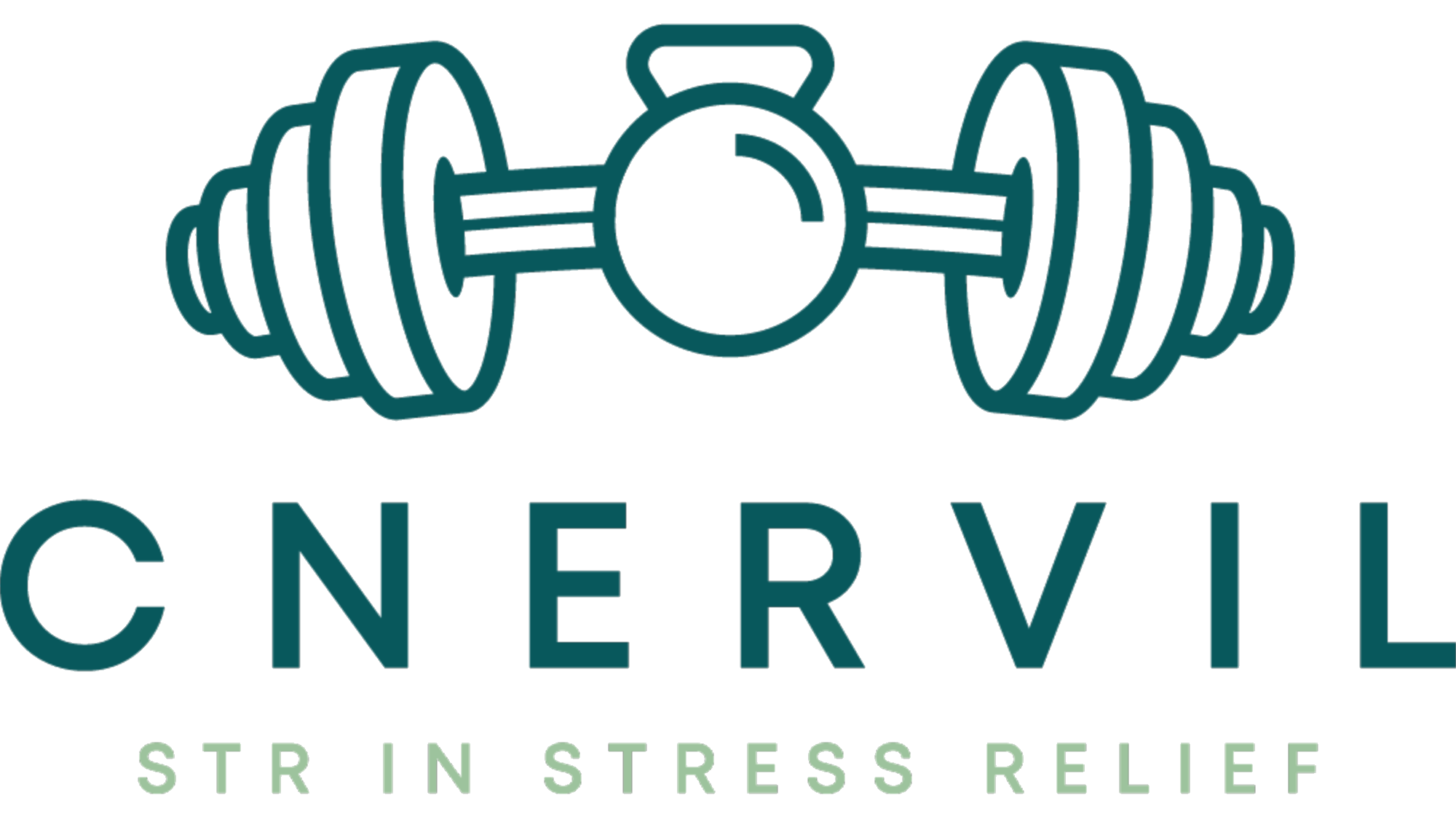Going Through Life: Figuring Out Jobs, Staying Healthy, and Growing as a Person

Pumping Iron, Lifting Spirits: 20 Ways Strength Training Can Kick Depression to the Curb
“Anxiety Is Anticipation Of Future Pain; Action Alleviates Anxiety.” -Bedros Keuilian
Hey there, fellow fitness enthusiast! Today, let's dive into a topic that's close to many hearts: how hitting the weights can be a game-changer when it comes to battling the blues.
We all know the struggle—those days when the world feels a bit too heavy and getting out of bed is a feat in itself.
Well, here's the scoop: Strength training might just be the superhero you didn't know you needed in your fight against depression.
As the coach here at cnervill, let's explore how hitting weights can give your mind and body a boost.
Let's get the short answer before we get into the real deal.
Strength training combats depression by releasing mood-enhancing endorphins and boosting serotonin and dopamine. It gives you a sense of accomplishment, improves sleep, reduces stress, and enhances overall well-being. Social connections in the gym, improved self-esteem, and holistic wellness help with mental resilience, releasing depression's grip.
Pumping Iron, Lifting Spirits
Ok, so with the takeaway nailed, let's get straight in with the first of 17 ways STR can help balance your body and well-being.
1. The Endorphin Boost
Ever heard of the term "runner's high"? Well, weight training can give you a piece of that action too.
When you pump iron, your body releases endorphins—those magical neurotransmitters responsible for making you feel like you're on cloud nine.
Say goodbye to the fog of depression and hello to the natural high that only a good lifting session can provide.
2. Empowerment in Every Rep
Picture this: you conquer a challenging set, lifting more than you thought possible.
That sense of accomplishment isn't just about physical strength; it's a mental win too.
With each rep, you're telling yourself, "I can do this," and that positive self-talk works wonders for the mind.
3. Stress-Busting Heavyweights
Life can be a rollercoaster, and stress is its sidekick. Strength training acts as a stress buster, allowing you to channel that pent-up tension into something constructive.
The rhythmic nature of lifting weights helps create a meditative space, calming the storm inside your mind.
4. Routine as a Lifesaver
Depression often thrives in chaos. Establishing a strength training routine brings stability to your life.
Having a set schedule and a commitment to regular workouts not only improves physical health but also provides a sense of structure and purpose—essential elements in the fight against depression.
5. Body and Mind Connection
Strength training isn't just about building biceps or sculpting abs. It's a holistic experience that connects your body and mind.
As you become more attuned to your physical self, you'll notice the mental fog lifting.
This mind-body harmony is a powerful ally against the darkness of depression.
6. Social Lifts
Don't underestimate the power of a gym buddy or a supportive community.
Strength training often involves shared spaces and shared goals.
Connecting with others who are on a similar journey can provide a sense of belonging and combat the isolation that often accompanies depression.
7. Neurotransmitter Harmony
Strength training has been linked to a boost in serotonin levels, the neurotransmitter known as the "feel-good" chemical.
By engaging in regular weightlifting, you're essentially giving your brain a natural mood-enhancing supplement, which can be a game-changer for those wrestling with depression.
8. Quality Zzz's
Ever notice how a good workout leaves you pleasantly exhausted?
That's not just fatigue; it's a ticket to a better night's sleep.
Quality rest is crucial for mental well-being, and strength training can help regulate your sleep patterns, contributing to a more rested and rejuvenated you.
9. Mindful Repetition
Strength training requires focus and concentration, turning each repetition into a mindful exercise.
This kind of mental engagement can serve as a temporary distraction from depressive thoughts, allowing you to break free from the cycle of negativity and focus on the present moment.
10. Boosted Self-Esteem
As you witness your body transform and grow stronger, your self-esteem gets a hefty boost.
It's not about conforming to societal ideals but recognizing your own capabilities.
This newfound self-worth can counteract the negative self-perception often associated with depression.
11. Release of Pent-Up Energy
Depression can manifest as a bundle of restless energy, and weight training provides a healthy outlet for it.
Instead of letting that energy fuel anxious thoughts, you redirect it into purposeful physical activity, leaving you feeling more balanced and in control.
12. Holistic Wellness
Strength training is a key player in the holistic wellness game.
It's not just about reps and sets; it's about nourishing your body, improving your mental resilience, and creating a positive feedback loop.
The more you invest in your overall well-being, the better equipped you become to tackle the challenges that depression throws your way.
13. Dopamine Drive
Strength training triggers the release of dopamine, a neurotransmitter associated with pleasure and reward.
This surge can counteract the dopamine deficiencies often observed in individuals dealing with depression, offering a natural mood lift and making your workout sessions a mental celebration.
14. Setting and Achieving Goals
Whether it's lifting a heavier weight or completing more reps, weight training provides tangible goals to strive for.
Setting and achieving these milestones not only builds physical strength but also creates a sense of accomplishment, which is crucial for breaking through the stagnant feelings that often accompany depression.
15. Mind-Body Coordination
The intricate movements involved in training demand coordination between your mind and body.
This synchronization enhances your proprioception, a fancy way of saying it—your awareness of your body in space—promoting a sense of control and mindfulness that can be a powerful ally against the chaos of depression.
16. Post-Workout Euphoria
That post-workout glow is real. The rush of endorphins after a challenging strength training session can linger for hours, providing a sustained mood boost.
It's like a mini-celebration your body throws for conquering the physical and mental challenges you faced in the gym.
17. Resilience Building
Strength training is a journey of ups and downs.
Some days you lift heavier, and some days you struggle.
Embracing these fluctuations helps with resilience, a trait that's crucial in the battle against depression!
The ability to bounce back from setbacks in the gym can translate to increased resilience in facing every day's challenges.
18. Improved Cognitive Function
Research suggests that regular exercise, including weight training, can enhance cognitive function.
Improved memory, sharper focus, and a clearer mind are all potential benefits.
This cognitive boost extends beyond the gym, increasing your ability to tackle daily tasks and work your way through the mental hurdles of depression.
19. Enhanced Body Image
Training in strength encourages a shift in focus from simply'what you look like' to functional strength and capability.
This shift can lead to a more positive body image, reduce the impact of what you see on social media every day, and help with self-acceptance, which are all important in the journey to overcoming depressive thoughts.
20. Mood-Regulating Hormones
Beyond endorphins, strength training influences hormones like cortisol and adrenaline, helping regulate stress responses.
By promoting a more balanced hormonal environment, weight training can help to stabilize your mood and create a buffer against the emotional rollercoaster often associated with depression.
How Weight Training Can Kick Depression to the Curb—To Finish On
So, grab your water bottle, cue up your favorite workout playlist, and let the transformative power of strength training guide you on your path to mental well-being.
It's not just about lifting weights; it's about lifting your spirits!
For more help, get in touch and find out how coaching with me can help you achieve your mental and physical goals.


